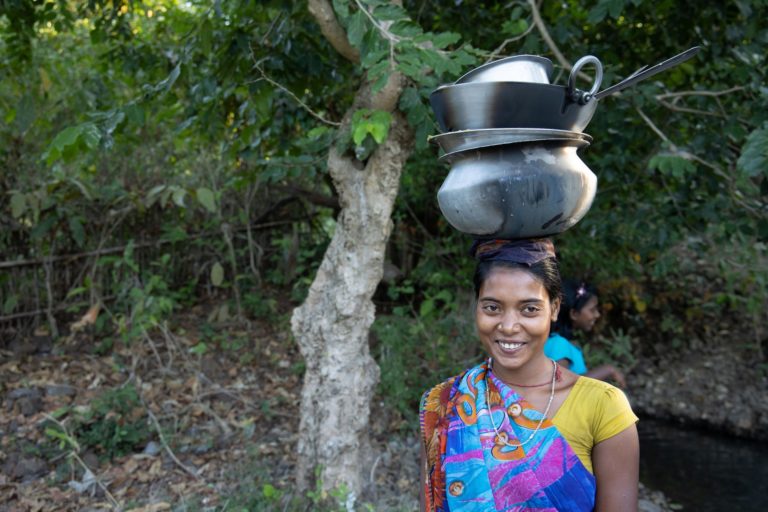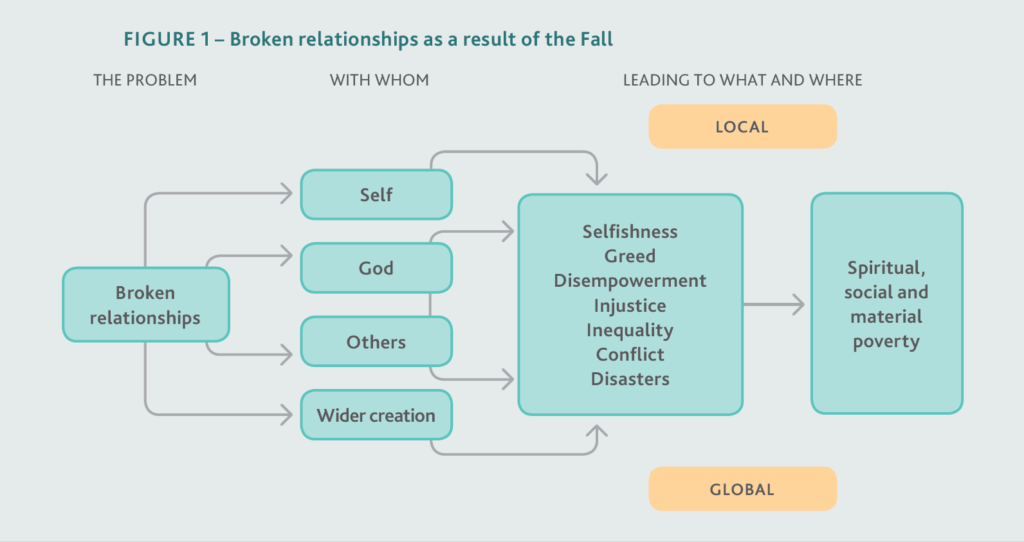
How we understand poverty will determine our response to it. Many, especially in the West, understand poverty as economic poverty. For example, the World Bank defines people in poverty as those living on less than $1.90 a day.
Other measures of poverty such as the Multidimensional Poverty Index (MPI) and The Happiness Index look beyond economic poverty, recognizing that poverty is more complex and also relates to health, education and access to resources. Tearfund’s understanding of poverty goes much further than even these definitions or metrics.


A Biblical Perspective On Poverty
God’s inherent nature is good. One of the ways this is shown in the Bible is through the central theme of justice and care for the poor in scripture. Consequently, poverty and oppression are symptoms of something fundamentally wrong in the relationship between God and humanity.
The biblical narrative describes an arc of history starting from a life of wholeness in creation (Genesis 1 and 2) that was marred by the Fall (Genesis 3). The consequence was broken relationships – ultimately with God, but also with each other, with ourselves, and with the whole of creation. This is shown in the following verses:
Broken Relationship with God
After sinning, Adam and Eve hid from God. ‘Then the man and his wife heard the sound of the LORD God as he was walking in the garden in the cool of the day, and they hid from the LORD God among the trees of the garden.’ (Genesis 3:8) The consequence of their disobedience was that their relationship with God changed and they were expelled from the garden.
Broken Relationship with Self
God created men and women in his own image (Genesis 1:26). However, after the Fall, shame entered Adam and Eve. ‘Then the eyes of both of them were opened, and they realised that they were naked; so they sewed fig leaves together and made coverings for themselves.’ (Genesis 3:7) Consequently, they no longer understood or felt comfortable with themselves as God’s image-bearers and children. This took away their identity, which takes away their very humanity. Poverty takes away human identity in God and changes the perspective we have of ourselves.
Broken Relationship with Others
The relationship between Adam and Eve was broken. ‘ “Your desire will be for your husband, and he will rule over you.” ’ (Genesis 3:16) The genuine, natural harmony they enjoyed with one another was ruined and injustice entered the world.
Broken Relationship with Creation
The relationship between humans and the environment was broken. ‘ “Cursed is the ground because of you; through painful toil you will eat food from it all the days of your life.” ’ (Genesis 3:17) Consequently, there is no longer an ease in nature’s bounty or fruitfulness.
Since the Fall, men and women have had to toil, with no guarantee of an equal return on their effort in working the land.
So, the Fall, documented in Genesis 3, has resulted in the imperfect world we now experience. Poverty and injustice are expressions of our separation from God, which impacts the environment as well as humanity.
Poverty is the result of a social and structural legacy of broken relationships with God, a distorted understanding of self, unjust relationships between people, and exploitative relationships with the environment. These broken relationships not only affect individuals’ lives, decisions, and actions, but also create broken systems, leading to problems such as power imbalances and corrupt governments. These fractures are made worse by conflicts and natural disasters, many of which also have roots in the broken relationships between
God, humanity and wider creation.
In our broken world, unjust systems and power structures make it easy for us to become complicit in sin and in exacerbating poverty, even unwittingly. Our decisions and choices can so easily condone, even shore up these systems. Theologian Justin Thacker describes this systemic aspect of poverty using a vivid metaphor: ‘As the strings in one part of a net are strengthened or broken, so the tension in other parts of the net is changed… Collective purchasing decisions in London can impact whether a child in Bangladesh gets to go to school.’
The consequence of the Fall is illustrated in Figure 1 (below).

